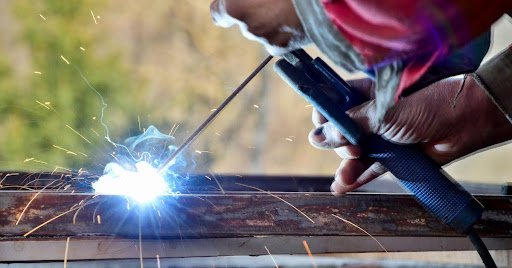Introduction
Sheet metal fabrication services are integral to the infrastructure of modern industry. From automobiles and airplanes to HVAC systems and kitchen appliances, fabricated sheet metal components are everywhere. These services involve cutting, bending, and assembling flat sheets of metal into functional parts or structures.
With advancements in technology and growing demands for precision and efficiency, sheet metal fabrication has evolved into a highly specialized and customizable manufacturing process. This article explores what sheet metal fabrication services entail, the techniques used, industries served, benefits, and the future of the industry.
What Is Sheet Metal Fabrication?
Sheet metal fabrication is a manufacturing process that transforms flat sheets of metal—typically steel, aluminum, copper, or brass—into desired shapes and products. It includes a series of operations such as cutting, bending, punching, welding, and assembling to produce metal structures or components.
Fabrication can be used to create simple items like brackets and enclosures or complex assemblies like airplane wings and structural frameworks.
Common Materials Used
- Steel (mild, stainless, galvanized) – Known for strength and durability
- Aluminum – Lightweight and corrosion-resistant
- Copper – Excellent electrical conductivity
- Brass – Attractive finish and corrosion resistance
- Titanium – High strength-to-weight ratio, often used in aerospace and medical
Key Processes in Sheet Metal Fabrication
1. Cutting
Cutting is the first step in most fabrication jobs. It involves slicing sheet metal to specific dimensions using:
- Laser Cutting – High-precision and clean edges, ideal for complex patterns
- Plasma Cutting – Fast and cost-effective, suitable for thicker metals
- Waterjet Cutting – No heat-affected zones, perfect for sensitive materials
- Shearing – Straight-line cuts using a blade
2. Forming and Bending
This process changes the shape of metal without cutting it. Tools like press brakes are used to bend metal into angles or curves.
3. Punching
Punch presses create holes, slots, or other cutouts. It’s a fast and repeatable method for large-volume production.
4. Welding
Joins two or more metal parts together. Common welding techniques include:
- MIG (Metal Inert Gas)
- TIG (Tungsten Inert Gas)
- Spot Welding
5. Assembling
Once parts are fabricated, they may be assembled using screws, rivets, adhesives, or welds to form a finished product.
6. Finishing
Processes such as powder coating, painting, anodizing, and polishing are used to enhance aesthetics, corrosion resistance, and durability.
Applications Across Industries
Sheet metal fabrication is critical to a broad spectrum of industries:
1. Automotive
Fabricated parts such as body panels, brackets, and exhaust systems are essential for vehicle manufacturing and customization.
2. Aerospace
Precision and lightweight materials are vital for aircraft components, including wing parts, fuselage sections, and engine housings.
3. Construction
Used for ductwork, structural supports, roofing, facades, and architectural features.
4. Electronics
Sheet metal is used to fabricate enclosures, racks, and frames for computers, servers, and other electronics.
5. Medical
Stainless steel equipment like surgical tables, carts, and instrument housings are all products of sheet metal fabrication.
6. Agriculture and Food Processing
Fabricated metal parts are found in food processing equipment, grain silos, and machinery components.
Benefits of Sheet Metal Fabrication Services
1. Durability
Fabricated sheet metal products are strong and can withstand extreme environments and heavy use.
2. Customization
Sheet metal can be tailored to meet specific design and functional requirements.
3. Cost-Effectiveness
For mass production, the per-unit cost is relatively low, especially when using automated processes.
4. Precision and Quality
Modern CNC machines and CAD/CAM software ensure high levels of accuracy and repeatability.
5. Speed and Efficiency
Rapid prototyping and fast production cycles help businesses meet tight deadlines.
6. Versatility
Can be used in countless applications across nearly every industry.
Challenges in Sheet Metal Fabrication
1. Material Waste
Improper planning or design errors can lead to unnecessary scrap, increasing costs.
2. Skilled Labor Shortage
There is an ongoing need for trained fabricators and welders, especially for precision and custom jobs.
3. Design Complexity
More complex parts require advanced tooling and software, raising initial costs.
4. Lead Time
Customized jobs or multi-step processes can increase turnaround time if not managed efficiently.
Innovations in Sheet Metal Fabrication
Modern sheet metal fabrication has seen many technological advancements, such as:
1. CNC Machining Integration
Computer Numerical Control (CNC) JSRPM Precision Machining bring automation, speed, and precision to fabrication processes.
2. 3D CAD Modeling
Allows for accurate digital prototyping and simulation before fabrication begins.
3. Robotic Welding and Automation
Reduces human error, increases safety, and improves production speed.
4. Smart Manufacturing
Integration of IoT and AI for predictive maintenance, real-time monitoring, and smart scheduling.
Choosing the Right Sheet Metal Fabrication Partner
When selecting a sheet metal fabrication service provider, consider the following factors:
- Experience and expertise in your industry
- In-house capabilities (cutting, forming, welding, assembly, finishing)
- Certifications (ISO 9001, AWS, etc.)
- Quality control processes
- Lead time and project management
- Customer service and communication
A reliable partner can offer design assistance, prototype development, and scalable production with consistent quality.
The Future of Sheet Metal Fabrication
The future of sheet metal fabrication is being shaped by:
1. Sustainability
Efforts to reduce waste, recycle scrap metal, and adopt eco-friendly materials and processes.
2. Additive Manufacturing Integration
Combining 3D printing with traditional fabrication for more complex, lightweight components.
3. Digital Twin Technology
Creating real-time digital replicas of fabricated systems for monitoring and performance analysis.
4. Augmented Reality (AR) in Design
Using AR to visualize projects before fabrication, reducing costly errors and improving collaboration.
Conclusion
Sheet metal fabrication services are foundational to manufacturing and innovation across industries. With precise engineering, versatile applications, and advanced technologies, these services continue to evolve—delivering tailored solutions that meet the growing demands of modern production.
Whether you need a single custom part or a large-scale production run, partnering with an experienced sheet metal fabrication provider ensures quality, reliability, and performance. As technology continues to advance, the possibilities in metal fabrication are only expanding, promising a future of smarter, more sustainable manufacturing.
